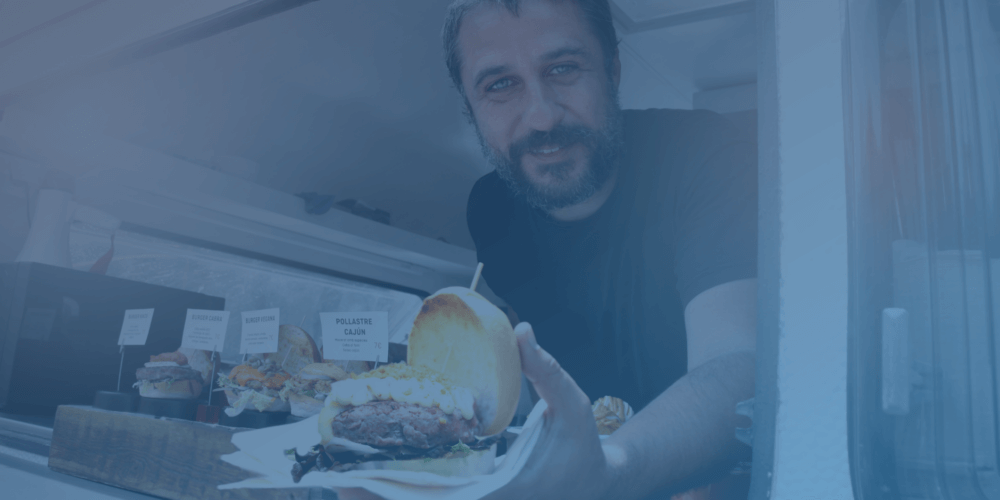While the restaurant industry’s focus is on serving delicious food and providing exceptional dining experiences, there’s another growing push alongside it: embracing sustainability and reducing carbon footprints. Customers now more than ever are looking for eco-friendly dining options, so what’s the best course of action?
Decarbonization!
When restaurants make an effort to reduce their carbon footprint, they can appeal to not only environmentally conscious diners but also contribute to a more sustainable future for their business. Let’s explore what decarbonization means, strategies that restaurants can utilize to decarbonize, and better understand what you can do for a greener tomorrow.
What Does Decarbonization Mean for Restaurants?
Decarbonization in restaurants refers to the process of reducing or eliminating carbon dioxide (CO2) emissions and other greenhouse gas emissions that come from the operations and activities of the restaurant. Decarbonizing involves taking steps to make operations more environmentally sustainable and less carbon-intensive. Does that mean you need to completely change your business model? Nope! There are plenty of ways to get started.
How Your Restaurant Can Work Towards Decarbonization
Sustainable Sourcing
Sustainable sourcing is one of the best ways to ensure your food is not having a large impact on the environment. Procuring ingredients and products locally and seasonally can minimize the energy-intensive and gas-heavy transportation and refrigeration required to bring food from distant locations to your kitchen. Plus, local and seasonal ingredients are fresher, taste better, and support local farmers!
Plant-Based Menu Options
Offering a menu with more plant-based options is not only on-trend but also eco-friendly and is it an excellent way to cater to the growing demand for vegetarian and vegan options.
Energy Efficiency
Investing in energy-efficient appliances, LED lighting, and smart HVAC systems can significantly reduce your restaurant’s energy consumption. While these upgrades may require an initial investment, they result in long-term cost savings and a reduced carbon footprint.
POS Systems
While POS systems themselves may not be energy-intensive, they can indirectly impact your decarbonization efforts in several ways. Choosing POS systems that are energy-efficient and properly configuring power-saving settings can help reduce electricity usage. POS systems can also help with encouraging electronic receipts and digital transactions, lowering the impact of paper production and waste.
Waste Reduction
Food waste is an ongoing issue in the restaurant industry. You can reduce waste and stop throwing away profits by implementing strategies such as accurate portioning, composting, and donating excess food to local charities — cutting down on waste and carbon emissions.
Renewable Energy
Consider installing renewable energy sources like solar to power your restaurant. It not only reduces your reliance on fossil fuels but also serves as a visible commitment to sustainability that customers appreciate.
Eco-Friendly Packaging
Minimizing the use of single-use plastics is a simple yet effective way towards decarbonization. Opt for biodegradable or reusable alternatives for takeout containers, utensils, and straws.
Menu Engineering
Examine your menu and adjust it to prioritize ingredients with lower carbon footprints. Consider reducing the number of high-impact ingredients and exploring creative ways to incorporate sustainable choices by highlighting plant-based options, utilizing portion control, local and seasonal ingredients, and remaining flexible to adapt to ingredient availability.
Green Certifications
Restaurants can obtain green certifications like LEED or join programs like the Green Restaurant Association to showcase your commitment and efforts to sustainability. Engage with your customers by sharing your sustainability initiatives and encouraging them to make eco-friendly choices. On top of being better for the environment, these can be great marketing tools.
Transportation and Delivery
Encouraging sustainable transportation options for staff and delivery services, such as biking or using electric vehicles, can reduce emissions associated with restaurant operations.
Water Conservation
Implementing water-saving measures and reducing water waste in the kitchen and dining areas can also contribute to decarbonization efforts.
Decarbonizing a restaurant is not only feasible but also beneficial in terms of cost savings, customer loyalty, and, most importantly, the health of our planet. By implementing these strategies, restaurants can reduce their carbon footprint and play a vital role in the global effort to combat carbonization. Schedule a demo with Decision Logic today to see how our tools can help you can identify and implement better operational efforts. Together, the restaurant industry can serve up a more sustainable future for us all, one delicious meal at a time.




